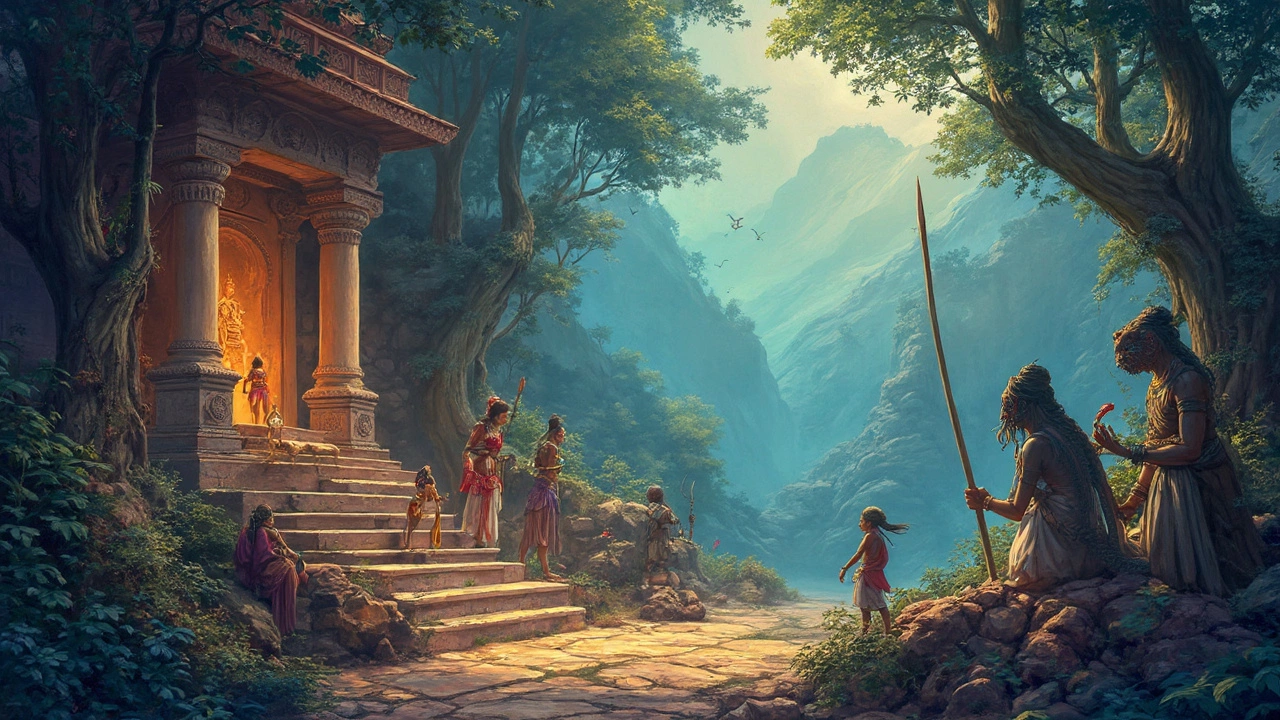Mythology Stories: Timeless Tales That Shape Cultures
Mythology stories are more than old bedtime tales. They explain why we have certain customs, why natural features look the way they do, and how people in the past dealt with big questions. Whether you’re reading Greek gods, Indian epics, or African tricksters, each story gives a glimpse into the mind of the culture that created it.
What makes these stories useful today? First, they’re packed with simple lessons about bravery, hubris, love, and justice. Second, they’re entertaining – full of action, drama, and surprising twists. Third, they help you connect with people from different backgrounds by sharing a common love for storytelling.
Why Mythology Still Matters
Even in the age of smartphones, mythology stories are used in movies, video games, and even corporate branding. Think about the lightning bolt of a certain superhero or the wise owl that appears on a university seal – those are direct nods to ancient myths. Understanding the original stories gives you a deeper appreciation for the modern references you see every day.
Mythology also strengthens cultural identity. In India, the Ramayana and Mahabharata are recited at festivals, shaping community values. In Scandinavia, Norse myths are taught in schools to keep the Viking heritage alive. When you know the story behind a tradition, you feel a stronger bond to the people who celebrate it.
Top Classic Mythology Stories to Read
1. The Epic of Gilgamesh (Mesopotamia) – Often called the world’s first novel, it follows a king who searches for immortality after losing his friend. The tale tackles grief, friendship, and the fear of death.
2. The Iliad and The Odyssey (Greece) – Homer’s poems show the heroism of Achilles and the cleverness of Odysseus. They teach about honor, loyalty, and the price of pride.
3. The Ramayana (India) – This saga follows Prince Rama’s quest to rescue his wife Sita from a demon king. It’s a lesson in duty, devotion, and the power of good over evil.
4. Anansi Tales (West Africa) – Anansi the spider uses wit to outsmart larger opponents. These stories highlight the value of intelligence and resourcefulness.
5. The Tale of Amaterasu (Japan) – The sun goddess hides in a cave, plunging the world into darkness. Her brother tricks her out, restoring light. It’s a reminder that balance and cooperation keep things running.
Reading these myths doesn’t require a scholarly approach. Pick a short version, listen to an audio retelling, or watch a respectful adaptation. The key is to focus on the core plot and the moral it carries.
If you want to start a habit, set aside 10 minutes each day for a myth. Write down one line that struck you and think about how it applies to modern life. Over time, you’ll notice patterns – heroes always face a flaw, villains often represent a fear, and the resolution usually restores order.
Mythology stories are a free library of human experience. They’re easy to access, fun to share, and rich in meaning. Dive into a myth today and see how an ancient voice can still speak to you in a modern world.
